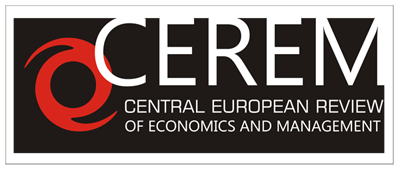“Mobilizing Green Finance for Small and Medium-sized Enterprises”
Guest editors:
- Dr Wytze van der Gaast, JIN Climate and Sustainability, the Netherlands, wytze@jin.ngo
- Dr Corrado Topi, University of York, UK, corrado.topi@york.ac.uk
Background
The Paris Agreement of 2015 contains a framework for a global approach on climate change mitigation. The core of the agreement is the goal to limit global average temperature increase to 2oC (compared to pre-industrial times levels) and if possible to 1.5oC. In order to achieve this goal, developed and developing countries will have to prepare national climate plans, so-called Nationally Determined Contributions or NDCs.
While NDCs are mandatory under the Paris Agreement, countries themselves determine the content of their climate plans. Every five years, a global stocktaking will take place to see to what extent all NDCs together bring the world closer to the 2o (or 1.5o) C target. In case the combined efforts fall short of this goal (a so-called emissions gap), additional, more ambitious plans are needed.
Formulating NDCs is thus left to the countries. This implies that the plans can have different shapes, goals, ambition levels, but also different approaches for identifying options for reducing greenhouse gas emissions and action plans for implementing these. These action plans require clear information about timeframes for implementation of the actions, responsibilities for private and public stakeholders in the sectors/country concerned, including small and medium-sized enterprises (SMEs).
Supporting SMEs in acquiring green finance
The European-funded project called GreenEcoNet has had a specific focus on the role of SMEs in a transition towards a green, low-emission economy[1]. The project concluded that access to finance is perceived by SMEs as a key obstacle for greening their business operations. A particular issue in that respect is that financial institutes often do not have the instruments in their portfolios to value the benefits of a greener business operation and therefore decline business proposals for green investments. At the same time, SMEs often have difficulties in formulating green business proposals that show the value of green business investments and how investment risks will be mitigated.
Given the important role of SMEs in European and global economies (e.g., over 99% of European enterprises are SMEs), facilitating their access to green finance will support SMEs participation in NDCs. For this special issue, we invite papers that specifically focus on the role of SMEs in national climate plans under the Paris Agreement (NDCs) and how this role can be enhanced through better access to (green) finance. Papers can focus on both perspectives:
- The perspective of SMEs, including what barriers they face when attracting (green) funding and how they can increase their attractiveness for potential funders with a view to formulating solid finance requests for green business proposals, and
- The perspective of financial institutes to develop instruments that are better suitable to assess business green proposals and provide green finance.
Further questions and abstract submission
Please send your abstract (maximum 1000 words) to Dr. Wytze van der Gaast (JIN, the Netherlands) and Dr. Corrado Topi (University of York, UK) at: wytze@jin.ngo, corrado.topi@york.ac.uk. Should you have further questions, please contact the guest editors at these e-mail addresses.
The abstracts should have the following structure:
Aim: The author(s) should shortly explain the reason or motivation for taking up the research problem (why is the topic important?), and what is the objective or aim of the research. The aim should be clearly formulated, and be specific enough to be achieved within the range of the paper.
Design / Research methods: The authors should clearly explain the way in which the aim or objective is achieved. The main research methods as well as the approach to the research should be provided that enable effective dealing with the paper’s aim.
Conclusions / findings: What are the main results of the research? The authors should refer to the analysis, discussion or results of the paper in order to show the main findings.
Originality / value of the article: Within the context of the current state of the art in science, what is new or what is the scientific value added of the paper? For whom would the paper be of interest?
Implications of the research (if applicable): How and to what extent can the results of the research be applied to practice? What are the consequences of application of the findings of the research to practice?
Limitations of the research (if applicable): Does the research imply directions or suggestions for future research? What are the limitations of the research methods used? What are the limitations of the implications of the research findings Keywords:
Keywords: provide 5 keywords in alphabetical order
JEL codes: provide the JEL codes applicable for your paper
Important dates
15 October 2017: submission of paper abstracts
30 October 2017: acceptance of abstracts and invitation to submit a paper
31 January 2018: Submission of papers for review
1 March 2018: Feed-back on papers from peer reviewers
1 May 2018: Submission of revised papers
1 June 2018: Feed-back from second round of review
15 September 2018: Publication of articles in Special Issue
